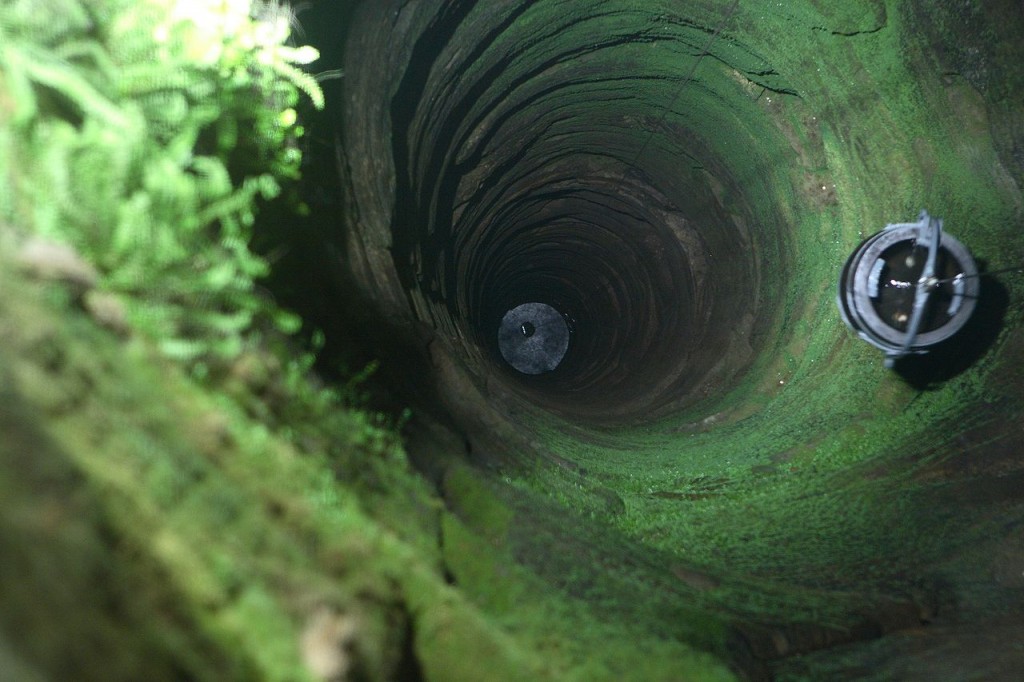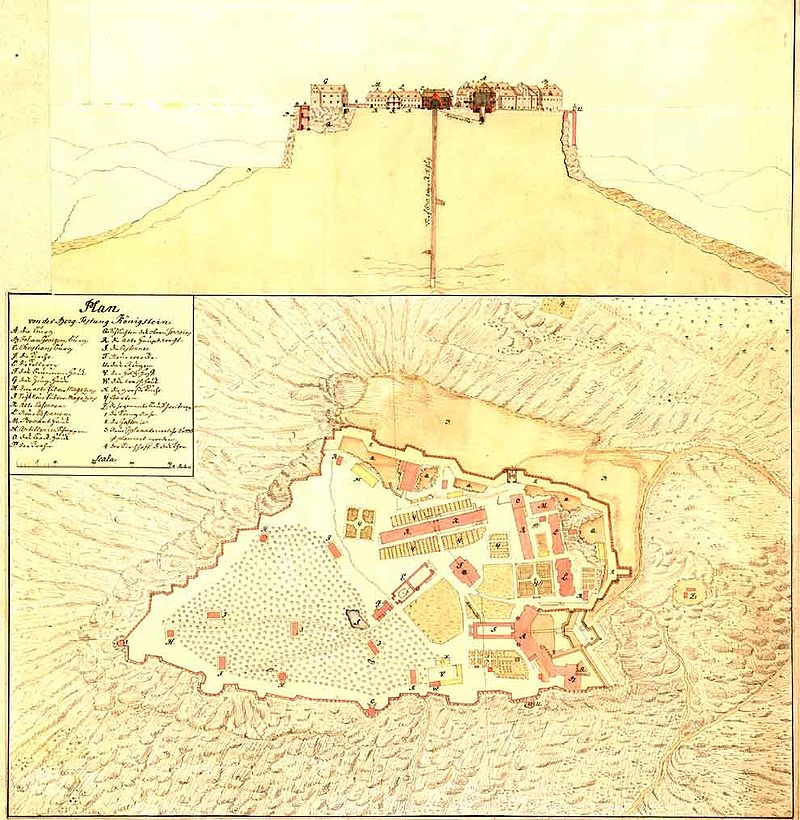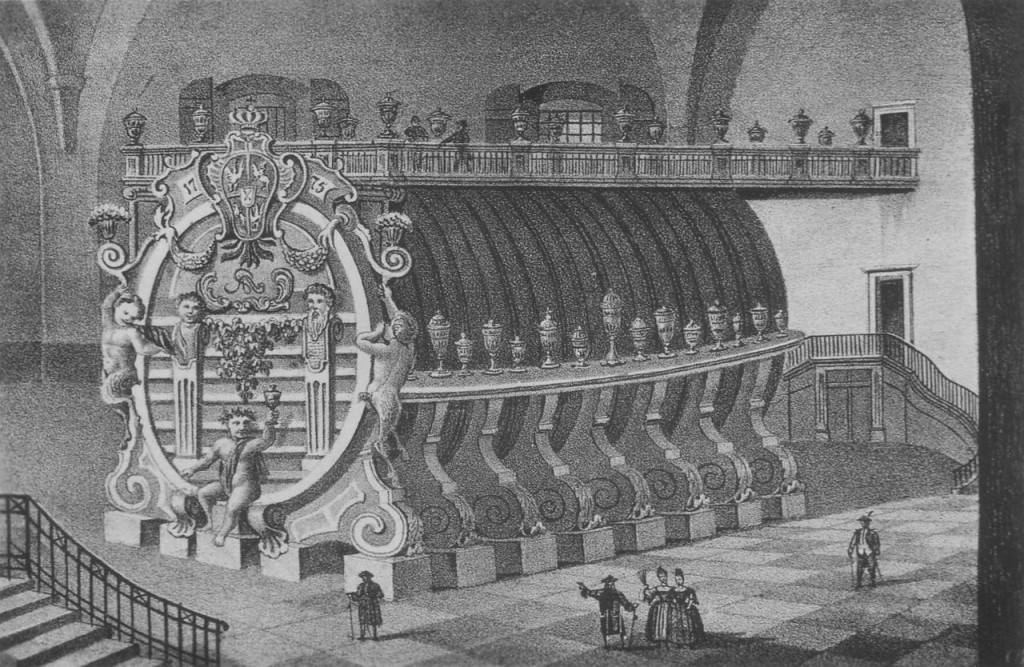The German Word for Water Well
The German word for Water Well is ‘Brunnen’, and you sometimes see borehole drilling rigs here in Germany with ‘Brunnenbau’ written on the side, which literally means ‘well construction’.
However, this is nothing if you’ve ever had the chance to see one of the most spectacular water wells ever made. Where is it? In Germany of course!
Water Well at Königstein Fortress – Germany
If you chuck a bucket of water down the well, it takes around 17 seconds for water to reach the bottom!

Königstein Fortress can be found just south east of Dresden in Germany in the former East Germany.
At one stage the Königstein was also a monastery. In 1516, Duke George the Bearded, a fierce opponent of the Reformation, founded a Celestine abbey on the Königstein, the Kloster des Lobes der Wunder Mariae. It closed again in 1524 – after the death of Duke George, Saxony became Evangelical.

152m Deep Water Borehole
It is probable that there had been a stone castle on the Königstein as early as the 12th century. The oldest surviving structure today is the castle chapel built at the turn of the 13th century. In the years 1563 to 1569 the 152.5 metre deep well was bored into the rock within the castle – until that point the garrison of the Königstein had to obtain water from cisterns and by collecting rainwater. During the construction of the well some 8 cubic metres of water had to be removed from the shaft every day.

How Did They Do It?
With today’s technology water wells 200m deep are quite common in the UK, but it does beg the question – how did they do it back then and what methods did they employ? If anybody has more information about this, we would love to hear from you.
Pictures of Old Rigs?
We’d also like to see pictures of old machinery used to drill water boreholes. Again, please get in touch. We will publish your images/ photos on our website along with your details (optional).
Jenny Hormell
Director
Waterseekers Well Drilling Services Ltd.
Can We Help You With a Project?
We offer a turn-key solution that covers not just the technical aspects such as borehole prognosis, but also every requirement typical of any large commercial water borehole project:
- Insurance
- Health and Safety
- Project Management
If you would like to talk to us about your project, we are happy to give no obligation advice. Visit our website, use the contact form, or call us on 01246 938499 or 01246 938499
Thanks for reading!
An Extra Glass of Wine!
From 1722 to 1725, at the behest of August the Strong, coopers under Böttger built the enormous Königstein Wine Barrel (Königsteiner Weinfass), the greatest wine barrel in the world, in the cellar of the Magdalenenburg which had a capacity of 249,838 litres.
In the UK you are eligible to extract up to 20,000 litres of water per day from your own water well.
The wine barrel cost 8,230 thalers, 18 groschen and 9 pfennigs. The butt, which was once completely filled with country wine from the Meißen vineyards, had to be removed again in 1818 due to its poor condition. Because of Böttger, Königstein Fortress is also the site where European porcelain started.

Post on 01 Jun 2016 by Water Well Drilling Enthusiast
Posted in
- ashrams
- borehole drilling
- borehole drilling derbyshire
- borehole drilling norfolk
- drinking water norfolk
- farming food and drink food production norfolk
- garden centres
- harri krishna
- healthy drinking water norfolk
- industrial water consumption norfolk
- irrigation norfolk
- low water pressure norfolk
- mosques
- municipal water supply norfolk
- new pitch norfolk
- News
- poor water quality norfolk
- poultry farming norfolk
- religious centres
- spring water norfolk
- water authorities norfolk
- water borehole drilling norfolk
- water borehole installation norfolk
- water boreholes
- water boreholes essex
- water boreholes norfolk
- water footprint
- water footprint norfolk
- water precious commodity
- Water Supply and tagged agricultural water footprint
- water supply for farms in berkhire
- water supply problems berkshire
- Water Wells









